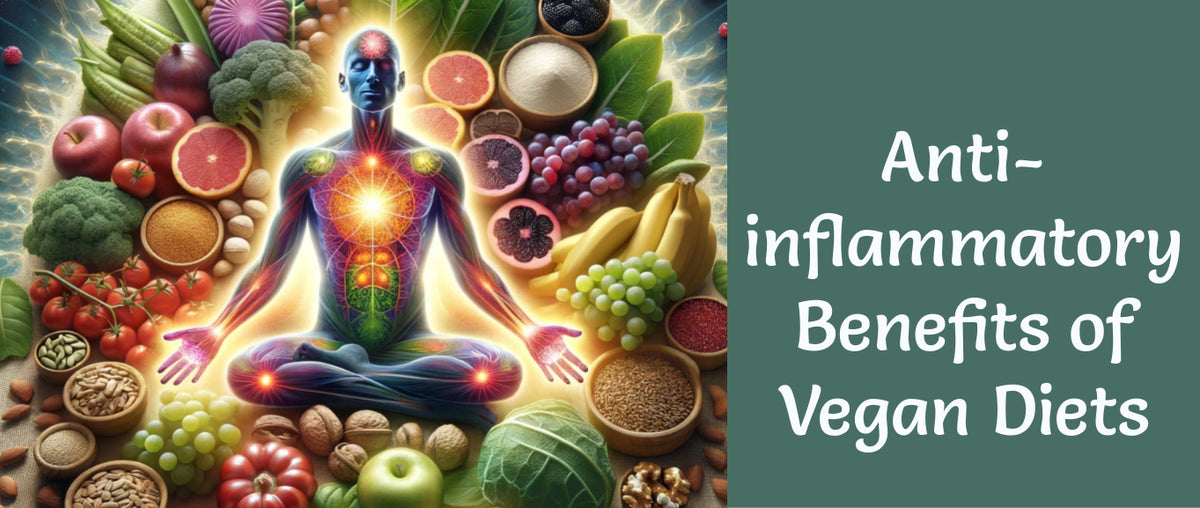Anti-inflammatory Benefits of Vegan Diets
Introduction
Inflammation, a natural bodily response, serves a crucial role in healing and fighting off infections. However, when inflammation becomes chronic, it can lead to various health issues, including heart disease, diabetes, cancer, and arthritis. Here, we explore how vegan diet, rich in anti-inflammatory Vegan products and plant based foods, offer potential in mitigating inflammation.
Understanding Inflammation
Inflammation can be categorized into acute and chronic forms. Acute inflammation is a short-term response to injury or infection, while chronic inflammation persists over a longer period and can contribute to the development of numerous diseases. Chronic inflammation acts in the body by triggering a sustained immune response, damaging tissues, and disrupting normal bodily functions.
The Basics of Vegan Diets
A vegan diet excludes all animal products and focuses on consuming fruits, vegetables, nuts, seeds, and whole grains. These vegan food products are rich in antioxidants, vitamins, and minerals, which play a key role in reducing inflammation and supporting overall health. Vegan Cheese, vegan butter , and other plant-based alternatives not only offer nutritional benefits but also contribute to a healthful lifestyle that may help manage chronic inflammation.

Anti-inflammatory Components of Vegan Diets
Vegan diets are rich in anti-inflammatory components such as antioxidants, phytochemicals, and fiber. Foods like cashew butter, garlic butter, and unsalted butter alternatives contain these beneficial compounds, which help reduce inflammation and promote overall health. Incorporating a variety of plant-based products into the diet provides a diverse range of nutrients that combat inflammation.
Scientific Evidence on Vegan Diets and Inflammation
Research consistently supports the anti-inflammatory benefits of vegan diets. Studies published in reputable scientific journals have shown that adopting a vegan diet can lead to reductions in markers of inflammation in the body. Real-life examples of individuals experiencing improvements in inflammation-related conditions through a vegan diet further validate these findings, highlighting the efficacy of plant-based eating in managing chronic inflammation.
Vegan Diet for Managing Specific Conditions
A vegan diet can be particularly beneficial for individuals suffering from conditions like arthritis and heart disease. By eliminating animal products and focusing on cholesterol-free foods and fat-free butter alternatives, individuals can effectively manage inflammation and improve their overall health. Practical advice, such as incorporating plenty of fruits, vegetables, and whole grains, ensures a well-rounded vegan diet that supports specific health needs.
Challenges and Considerations
While adopting a vegan diet offers numerous health benefits, it may pose challenges such as potential nutritional deficiencies. However, these challenges can be mitigated by careful meal planning and ensuring adequate intake of essential nutrients. Tips for transitioning to a vegan diet include gradually incorporating more plant-based foods into meals, seeking guidance from healthcare professionals, and utilizing resources such as vegan cookbooks and online recipes to create balanced and nutritious meals.
Incorporating Anti-inflammatory Foods into a Vegan Diet
Provide a list of highly anti-inflammatory vegan foods to include in the diet. Offer a sample meal plan or recipes that highlight these anti-inflammatory ingredients, incorporating vegan mayo, plant based cheese , and other vegan items to demonstrate the diversity and deliciousness of vegan eating.
Conclusion
Conclude by summarizing the key benefits of a vegan diet in reducing inflammation. Encourage readers to consider a vegan diet for health and wellness, reminding them to consult with a healthcare professional before making significant dietary changes. This will reinforce the article's commitment to responsible and informed dietary choices.








